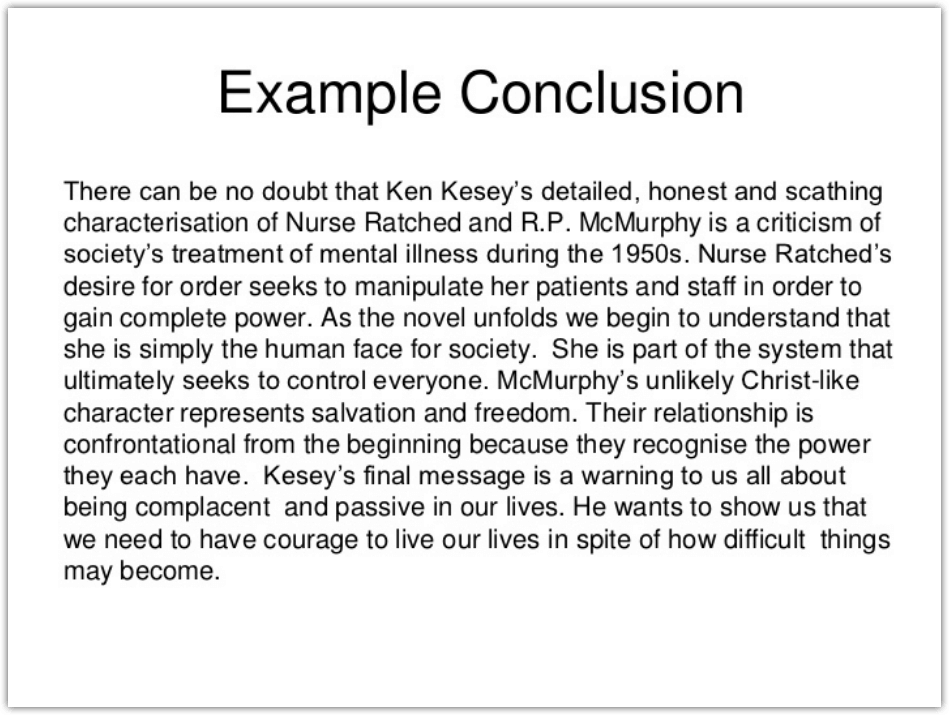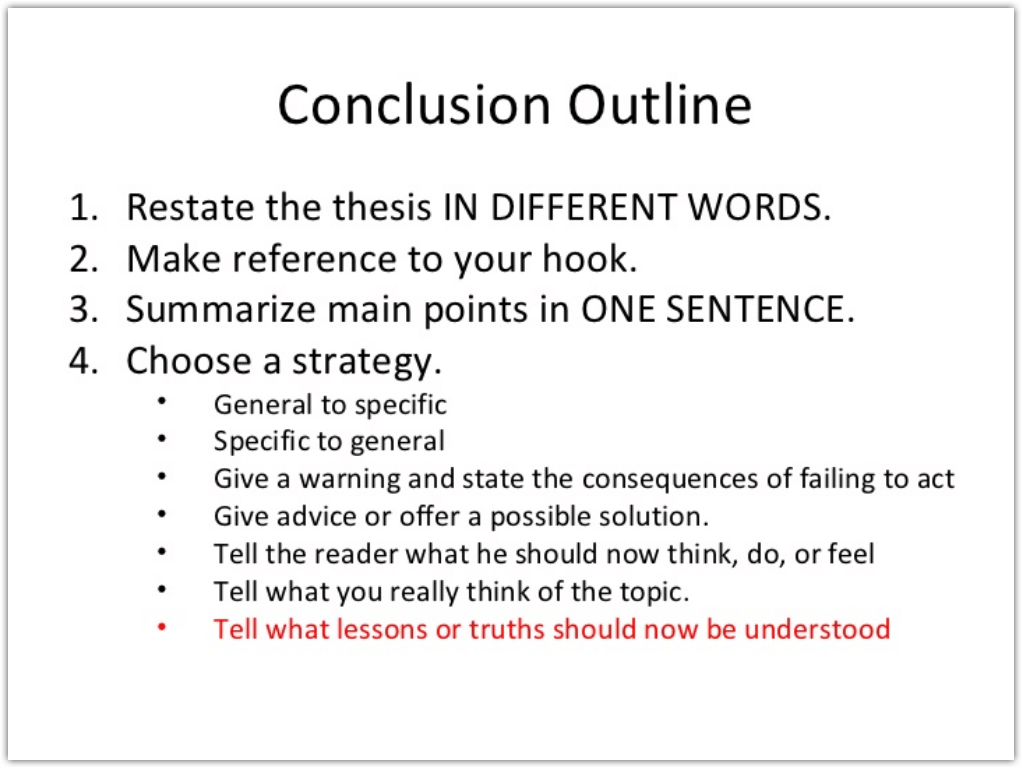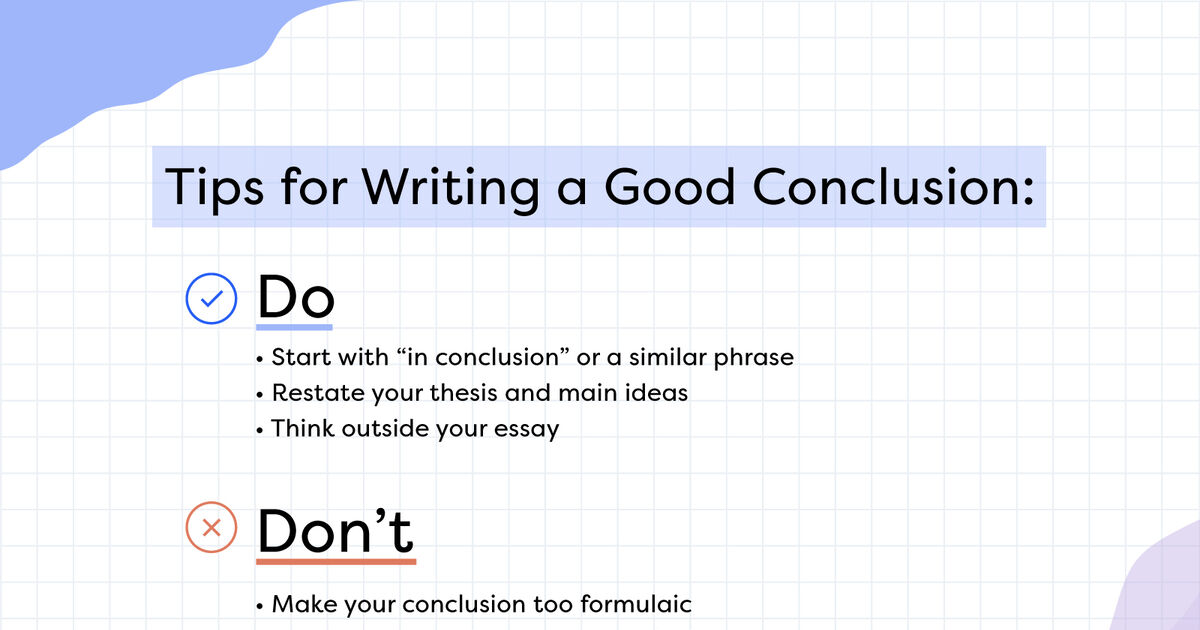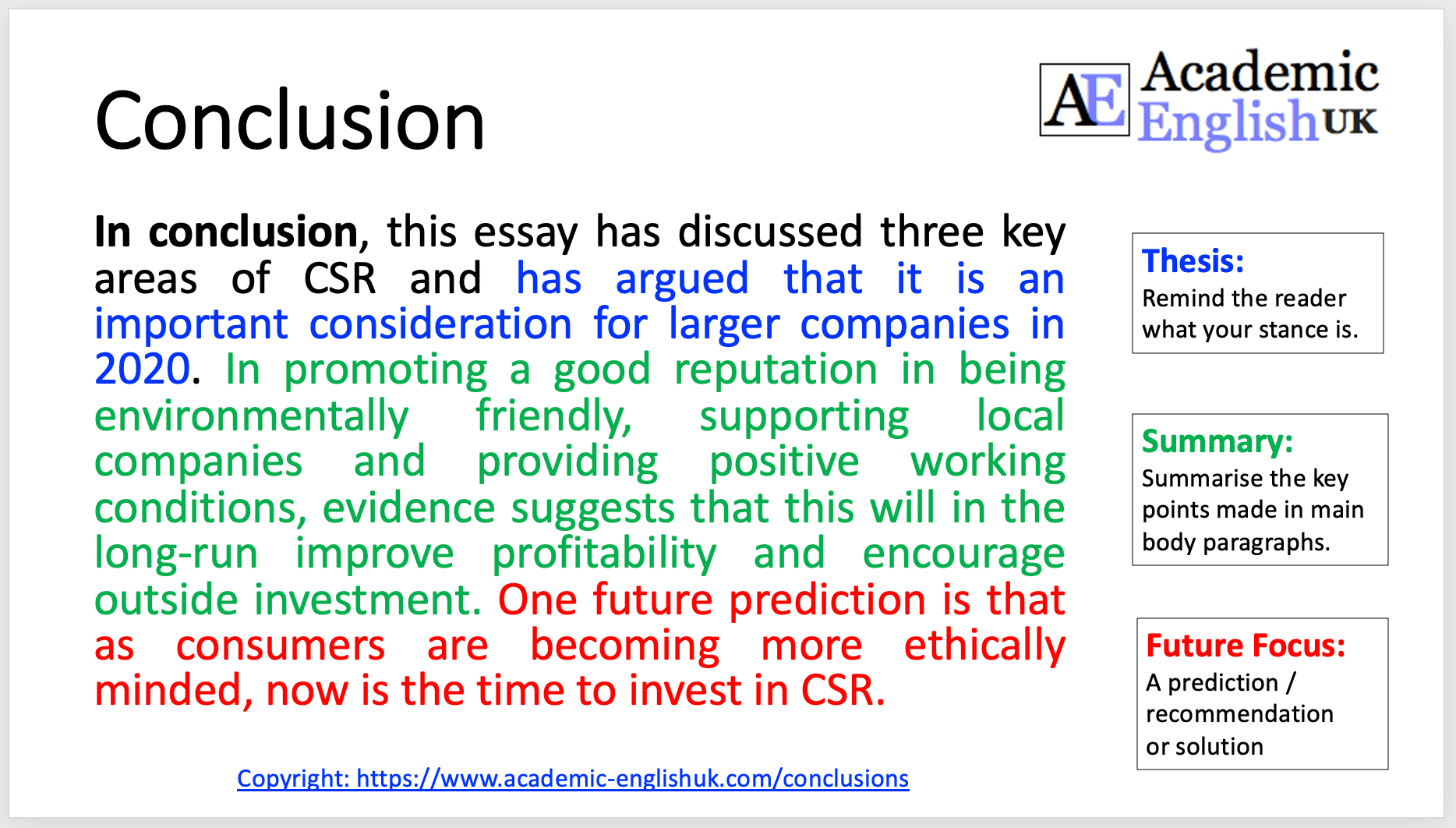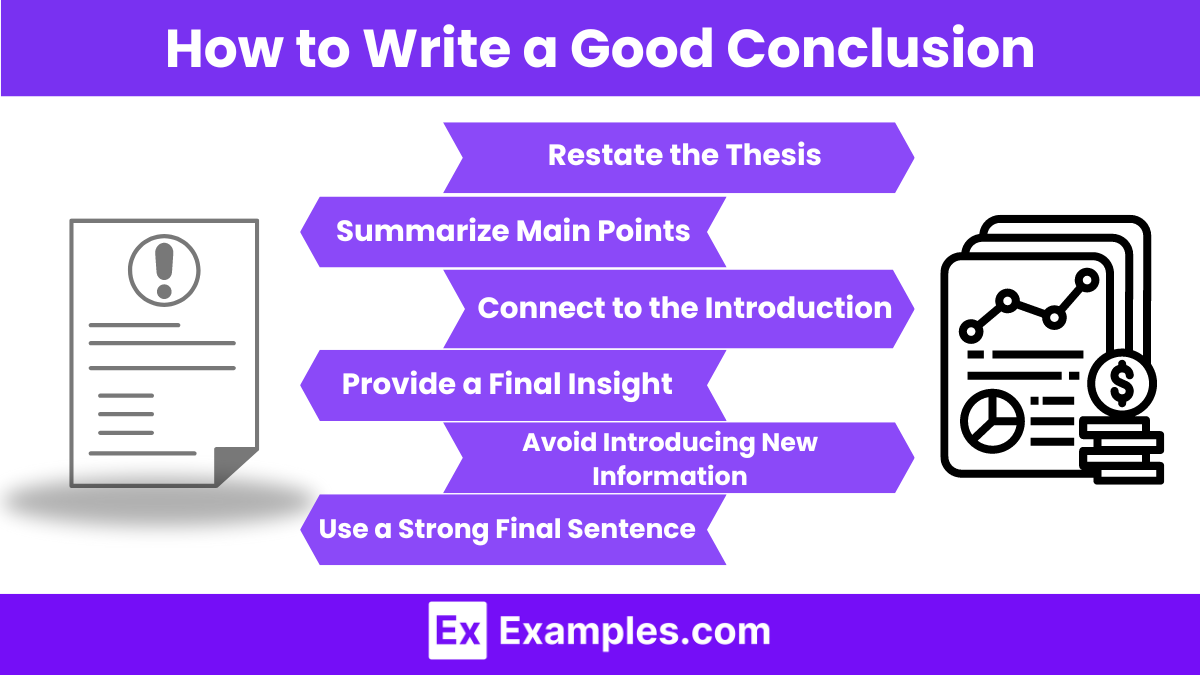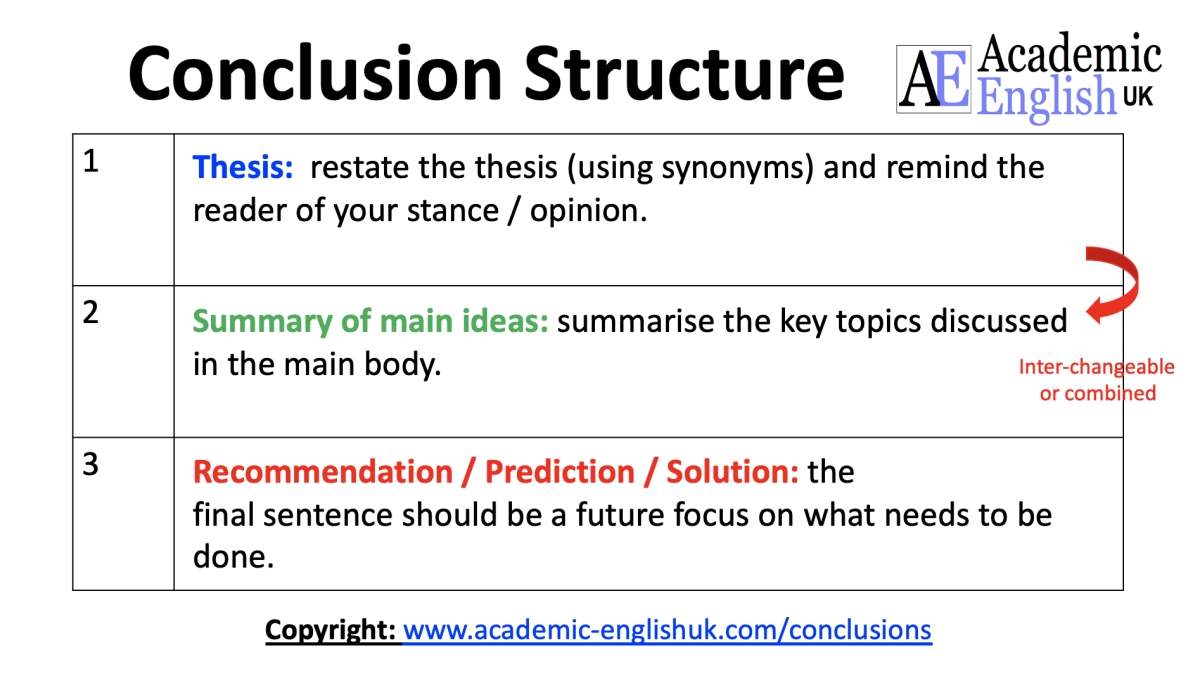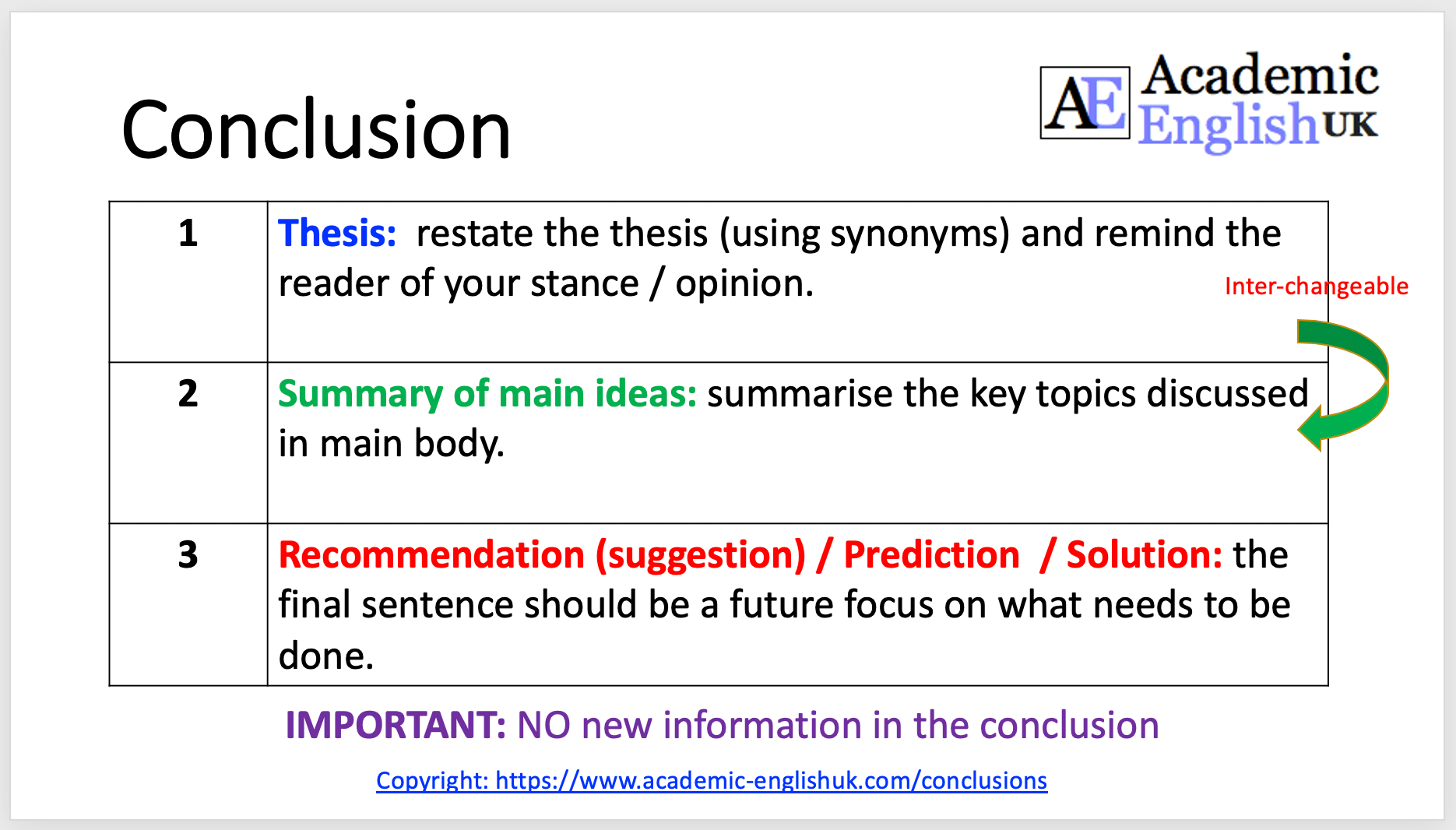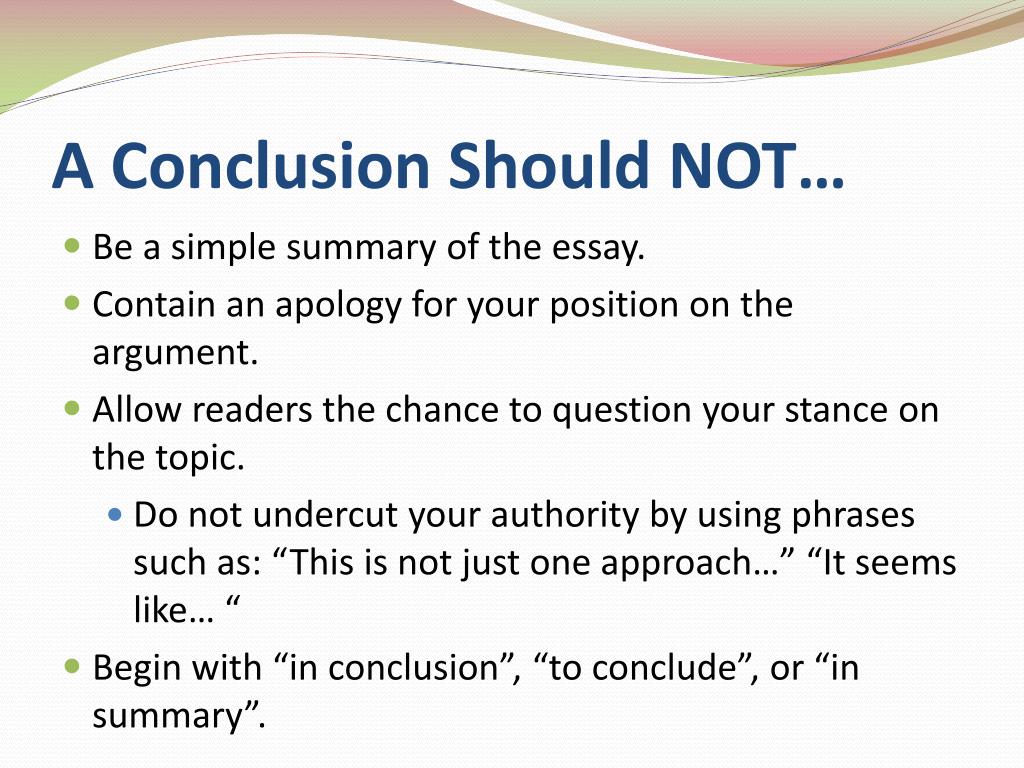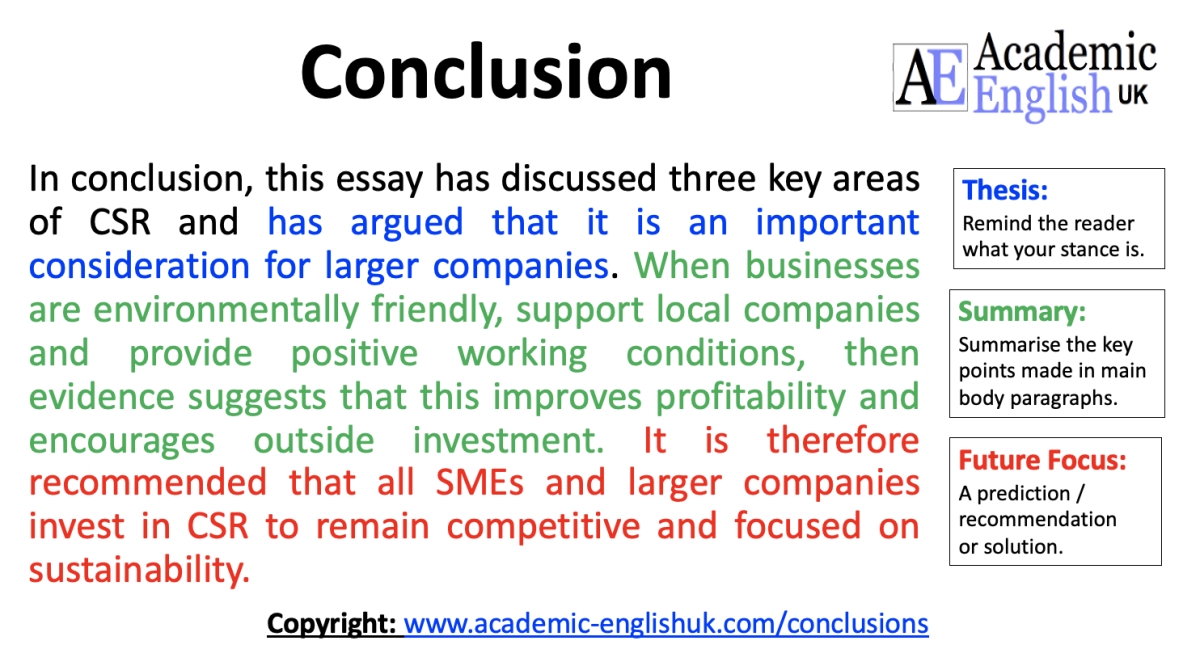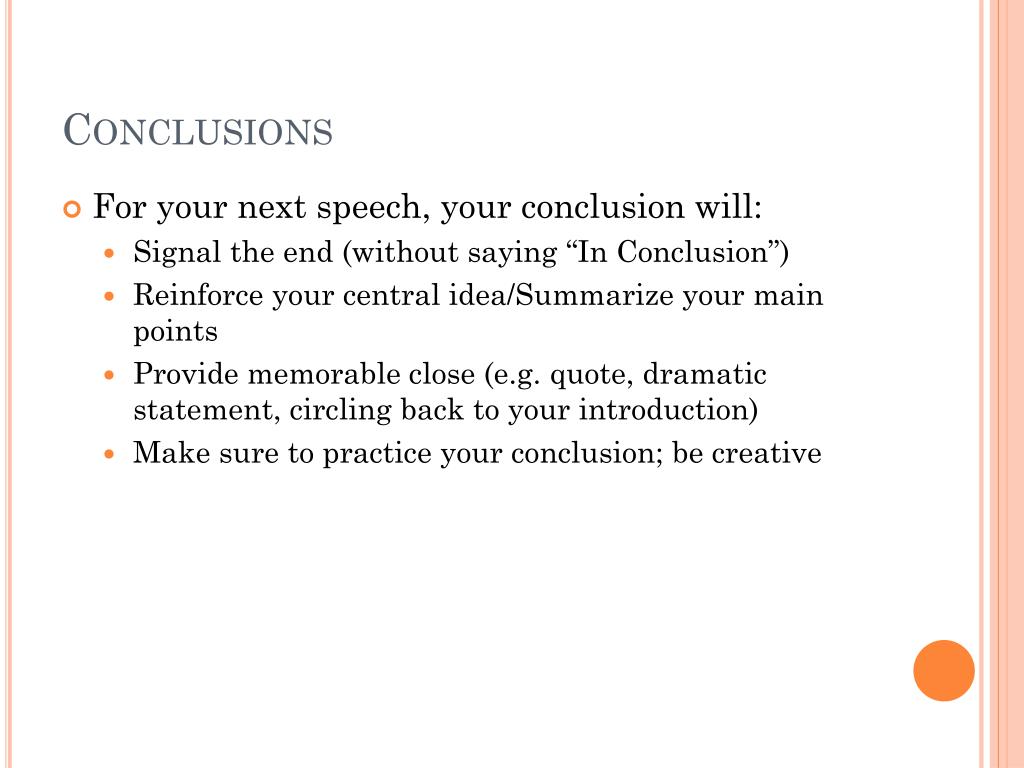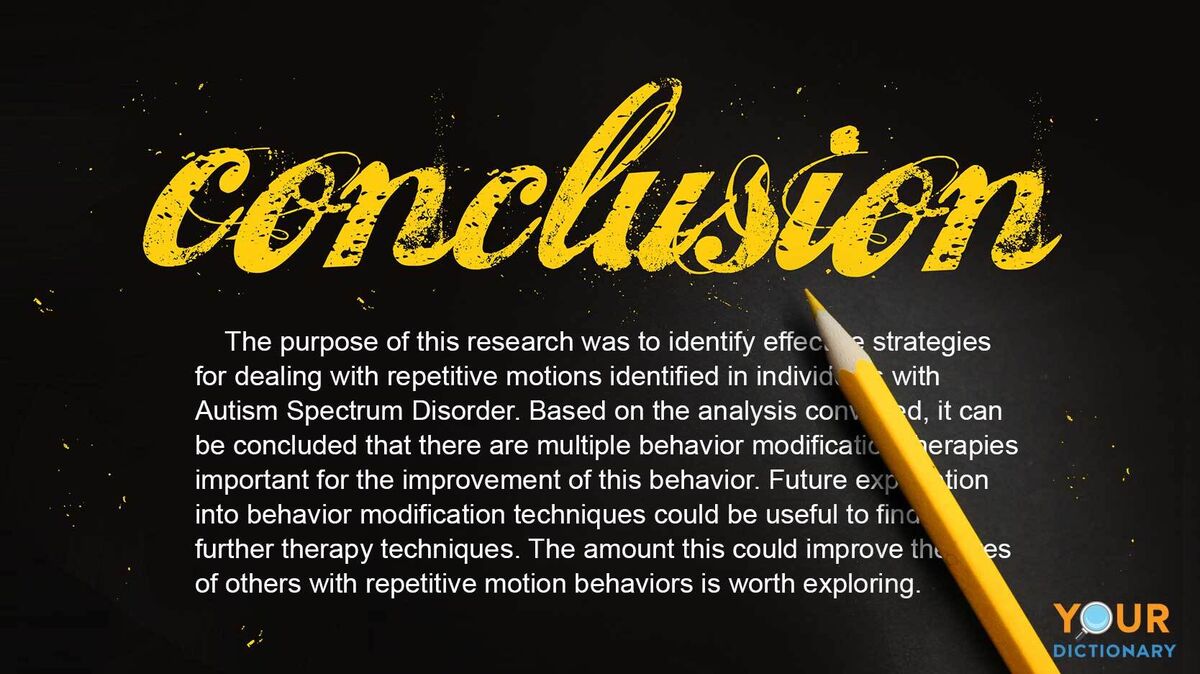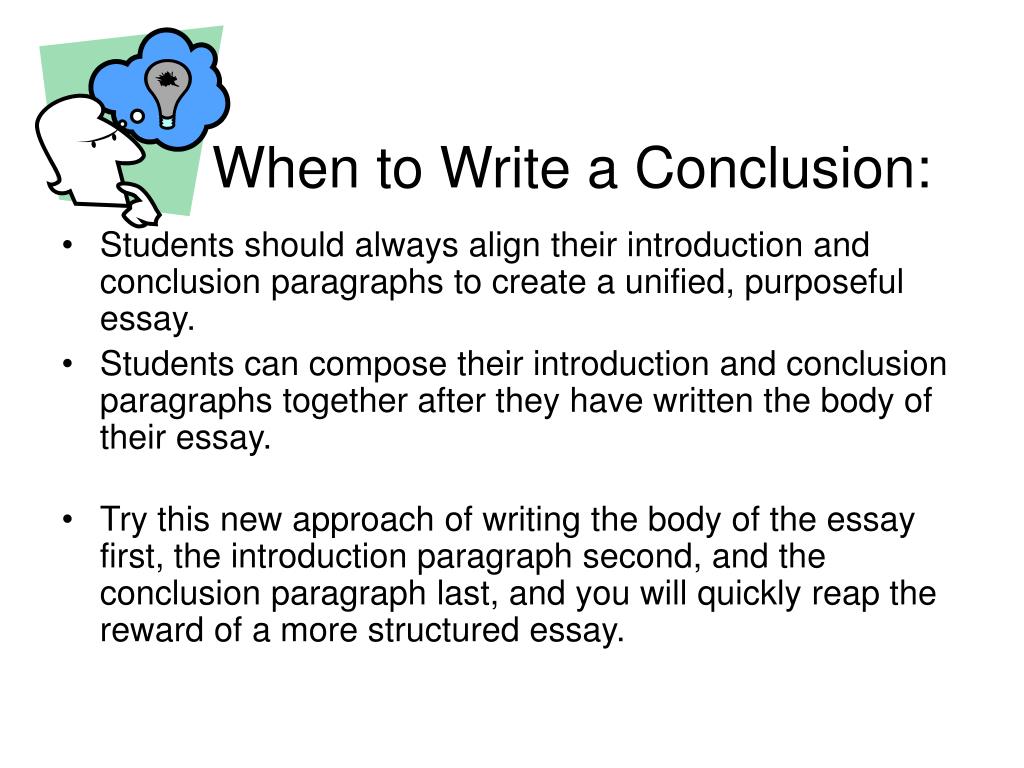How To Write A Good Conclusion For A Speech
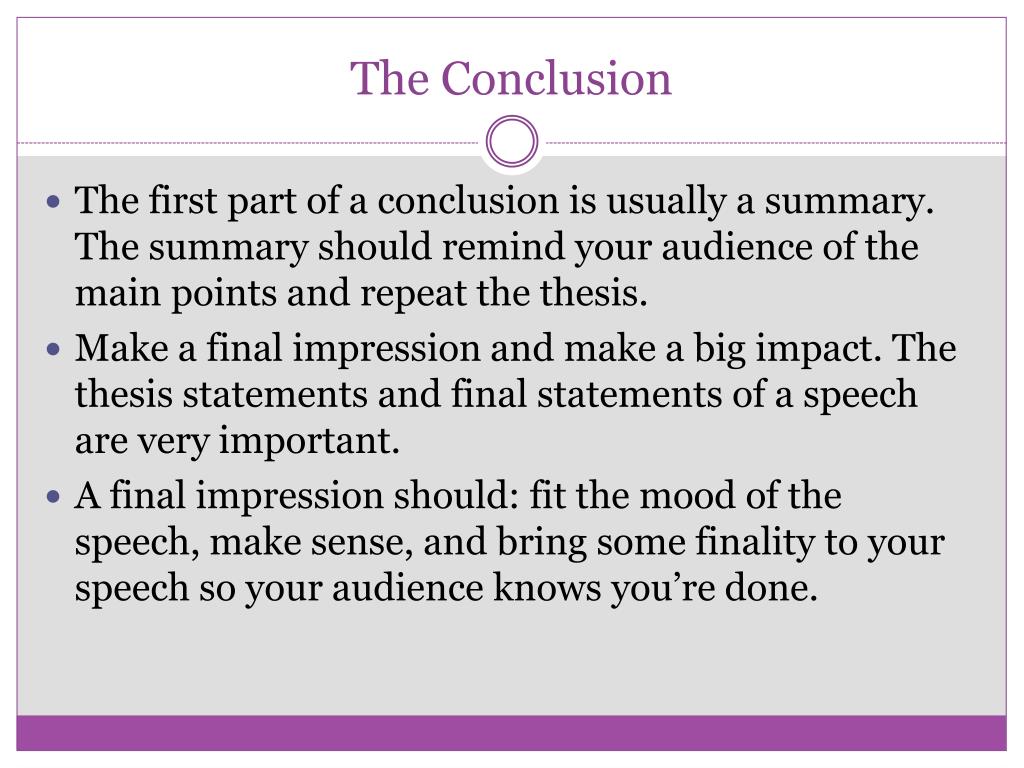
Imagine standing on a stage, the lights warm on your face, the murmur of the audience a comforting hum. You've delivered your heart and soul, weaving a tapestry of words intended to inspire, inform, or perhaps even incite change. Now, the moment of truth: the conclusion. It's the final brushstroke on your masterpiece, the last note of a symphony, and it needs to resonate.
Crafting a powerful conclusion is crucial for leaving a lasting impact. A well-structured ending can elevate a good speech to a great one, ensuring your message lingers in the minds of your audience long after you step down from the podium.
The Art of the Final Impression
The conclusion is not merely a formality; it’s an opportunity to solidify your message and leave your audience with a clear takeaway. Think of it as the bow on a beautifully wrapped gift. Without it, the presentation feels incomplete.
But how do you write a conclusion that captivates, convinces, and compels? Here's a guide to crafting endings that resonate.
Recap and Reinforce
Begin by briefly summarizing your main points. This isn't about repeating everything verbatim, but rather about highlighting the key arguments or ideas you've presented.
Use phrases like, "In summary," or "To reiterate," to signal that you're bringing your speech to a close. This helps the audience organize their thoughts and remember the most important aspects of your message.
Call to Action
If your speech aims to inspire action, this is where you make your ask explicit. What do you want your audience to do with the information you've shared?
Be clear and concise. "I urge you to consider volunteering," or "Let's all commit to reducing our carbon footprint" are examples of direct and actionable requests.
The Power of a Story
A well-placed anecdote can be incredibly effective in your conclusion. Tie it back to your central theme, illustrating your points with a compelling narrative.
This could be a personal story, a historical example, or even a fictional scenario. According to research by Stanford University, stories are up to 22 times more memorable than facts alone.
A Thought-Provoking Question
End with a question that encourages your audience to reflect on your message. This can be a rhetorical question, or one that invites them to further consider the implications of your speech.
For instance, if you've been speaking about environmental conservation, you might ask, "What kind of planet do we want to leave for future generations?"
The Quotable Quote
A carefully chosen quote from a respected figure can add weight and authority to your conclusion. Select a quote that resonates with your message and reinforces your key takeaways.
Be sure to attribute the quote correctly and explain its relevance to your speech. "As Nelson Mandela said, 'Education is the most powerful weapon which you can use to change the world.' This is why we need to invest in our schools and empower our students."
Avoid These Pitfalls
There are a few common mistakes to avoid when crafting your conclusion. Don't introduce new information at the very end, as this can confuse or overwhelm your audience.
Similarly, avoid rambling or apologizing for your speech. Project confidence and conviction, even if you're feeling nervous.
Finally, don't end abruptly. A sudden stop can leave the audience feeling disoriented. Use a clear concluding phrase, such as "In conclusion," or "Thank you," to signal the end of your speech.
Practice Makes Perfect
The best way to master the art of writing a good conclusion is to practice. Write out several different versions and rehearse them aloud.
Pay attention to your tone and pacing. A strong conclusion should be delivered with confidence and conviction.
Remember, the conclusion is your final opportunity to connect with your audience and leave a lasting impression. Make it count.The National Speakers Association suggests recording yourself speaking and then critically reviewing the recording to improve your delivery.
So, as you step up to the podium, armed with your meticulously crafted conclusion, remember that you have the power to move, to inspire, and to make a difference. Let your final words be a beacon, guiding your audience towards a brighter future, one thought, one action, one speech at a time. Go forth and conclude with confidence!

